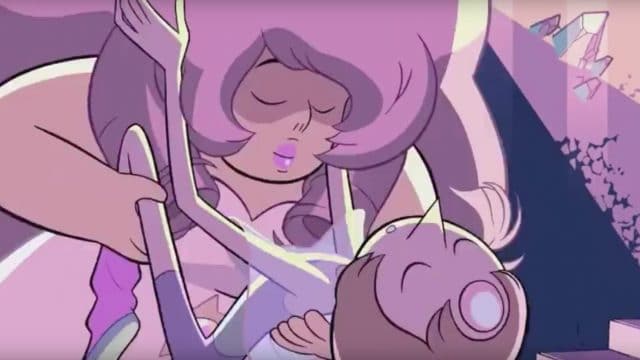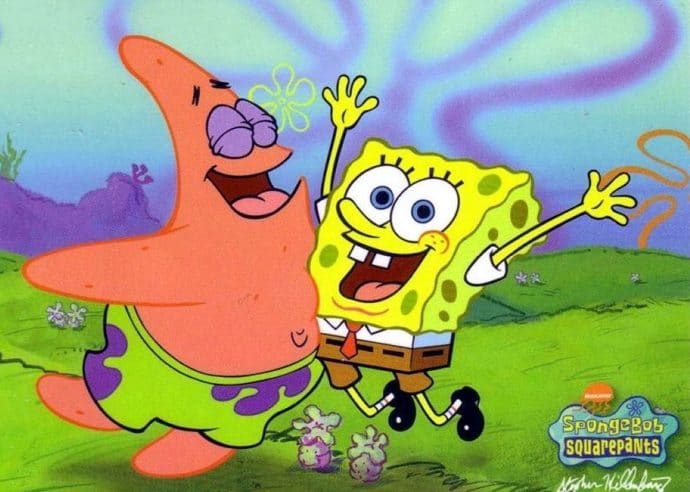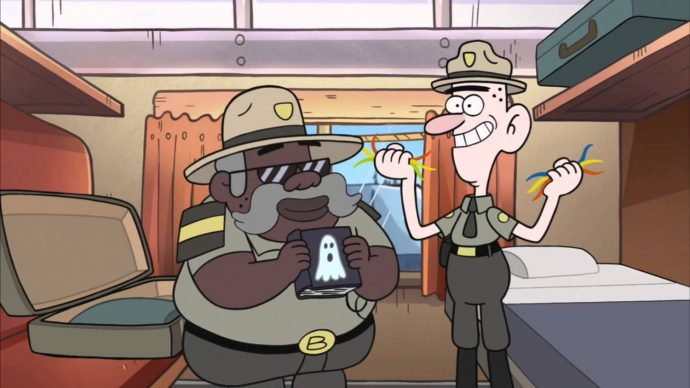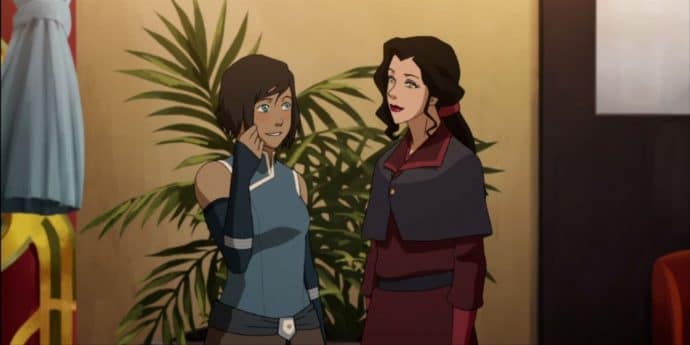
“Despite my greatest efforts, it finally came down to, ‘Change the scene or we’ll cut it out of the episode ourselves.'”
For years, animated series have blazed a trail for LGBT representation. But breaking ground isn’t always easy—around the world, queer-friendly cartoons have been censored by networks and government agencies alike.
Below, learn about nine popular cartoons that fell prey to censorship.
“Postcards From Buster”
In 2005 episode “Sugartime!” Buster goes on a trip to Vermont, where he meets a lesbian couple who run a farm and make maple syrup. (At the time, Vermont was one of the only states to offer same-sex domestic partnerships.) Despite the very tame nature of the episode, Bush-era Education Secretary Margaret Spellings criticized the publicly funded network for “promoting the gay lifestyle.” She demanded the episode be pulled, and it only aired on a few stations nationwide.
“You can be assured that in the future the department will be more clear as to its expectations for any future programming that it funds,” Spellings told the show’s creators.
“Sailor Moon”
Beloved Japanese anime Sailor Moon originally depicted Sailor Neptune and Sailor Uranus as a lesbian couple who often shared tender moments and longing glances.
But when distributors took the show abroad, their relationship got altered: In France, Poland, Italy, and the U.S. portrayed the pair as “close friends” or “cousins.” One Russian network even rewrote Sailor Uranus as a man, and hired a male actor to provide the character’s voice.
“The Amazing World of Gumball”
In 2011, a Season One episode of this Cartoon Network show was censored in Australia and New Zealand for including a kiss between the two leads, Darwin and Gumball, as well as a comment about “how great” the the smooch was.
In Poland and Latin America, different episodes of Gumball have also been censored for “homosexual overtones”.
“SpongeBob Squarepants”
 In 2012, censors in Ukraine tried to ban SpongeBob Squarepants from airing, denouncing the series as a “real threat to children.”
In 2012, censors in Ukraine tried to ban SpongeBob Squarepants from airing, denouncing the series as a “real threat to children.”
The main gripe of the Ukraine National Expert Commission for Protecting Public Morality was the show’s alleged implications of homosexuality between SpongeBob and best friend Patrick. (The two sea creatures frequently hold hands.)
Officials also cited the show’s large gay fanbase as a reason to nix the series.
“Clarence”
Cartoon Network broke new ground by including a gay couple in this cartoon series in 2014. But fans got irate when they learned a kiss between the two men was censored.
In the original cut, a man greeted his partner in a restaurant with a kiss on the lips. But in the version that aired, it was a chaste peck on the cheeks.
Cartoon Network did redeem itself: A June 2016 episode featured out actors Lea Delaria and Tig Notaro as the voices behind lesbian moms E.J. and Sue.
“Steven Universe”
Steven Universe has been praised for its unique take on gender, but U.K. broadcasters determined a 2015 episode with Pearl and Quartz dancing together to a romantic song was too risqué and censored the episode.
Cartoon Network defended the choice, claiming, “We do feel that the slightly edited version is more comfortable for local kids and their parents.”
“Gravity Falls”
 A proposed lesbian relationship on Disney’s Gravity Falls was nixed by wary higher-ups, who told creator Alex Hirsch he couldn’t include the couple, even for a brief cameo. The idea came from one of Hirsch’s storyboard artists, he told The Mary Sue in 2014, and it broke his heart to cut it.
A proposed lesbian relationship on Disney’s Gravity Falls was nixed by wary higher-ups, who told creator Alex Hirsch he couldn’t include the couple, even for a brief cameo. The idea came from one of Hirsch’s storyboard artists, he told The Mary Sue in 2014, and it broke his heart to cut it.
“I wanted to set a precedent, and I argued that little things like this could mean the world to people and that anyone who was pissed off deserved to be pissed off,” Hirsch said. “But despite my greatest efforts, it finally came down to, ’Change the scene or we’ll cut it out of the episode ourselves.’”
Hirsch eventually included a gay couple in Gravity Falls: Sheriff Blubs and Deputy Durland, who made history in February 2016 as Disney’s first animated gay couple.
“The Legend Of Korra”
 In June 2017, Kenyan officials made headlines after banning a half-dozen cartoon series they deemed “pro-gay.” The list included Nickelodeon’s The Legend Of Korra, the Avatar: The Last Airbender spinoff that concluded with an implied lesbian relationship between protagonists Korra and Asami. (The relationship was later explicitly confirmed in a comic book spinoff.)
In June 2017, Kenyan officials made headlines after banning a half-dozen cartoon series they deemed “pro-gay.” The list included Nickelodeon’s The Legend Of Korra, the Avatar: The Last Airbender spinoff that concluded with an implied lesbian relationship between protagonists Korra and Asami. (The relationship was later explicitly confirmed in a comic book spinoff.)
Other series barred from the African country included Hey Arnold, Steven Universe, The Loud House, Gravity Falls, and Clarence.
“The Loud House”
In a July 2016 episode, Nickelodeon’s The Loud House briefly briefly featured a pair of married gay dads. It was heralded as a victory by LGBT advocates—but it was deemed “inappropriate” for South African audiences and nixed the scene. But since DStv serves all of Africa, viewers across the continent missed out on the scene.
“Nickelodeon strives to ensure that content respects the varying traditions and family values in each country,” a rep told News 24 Africa.







